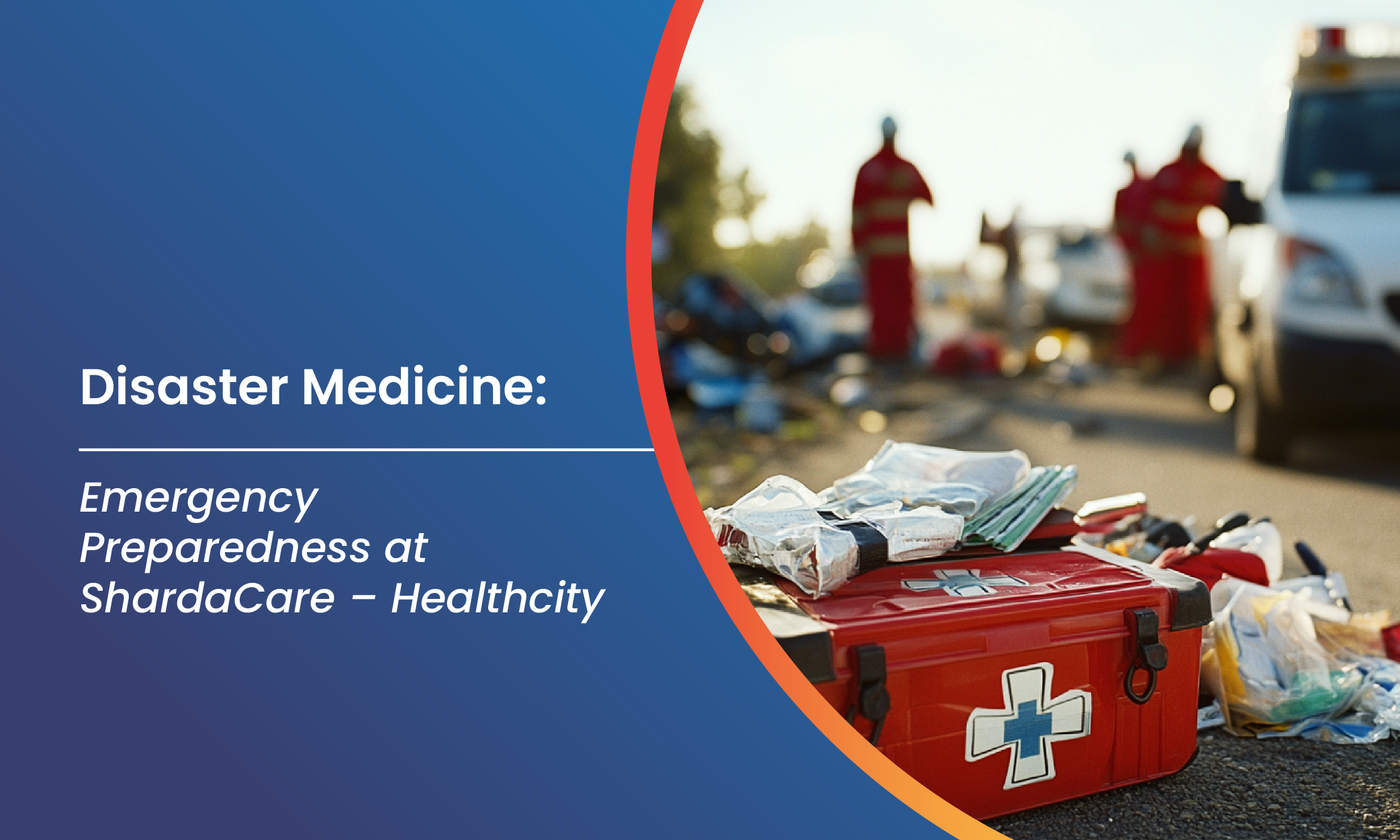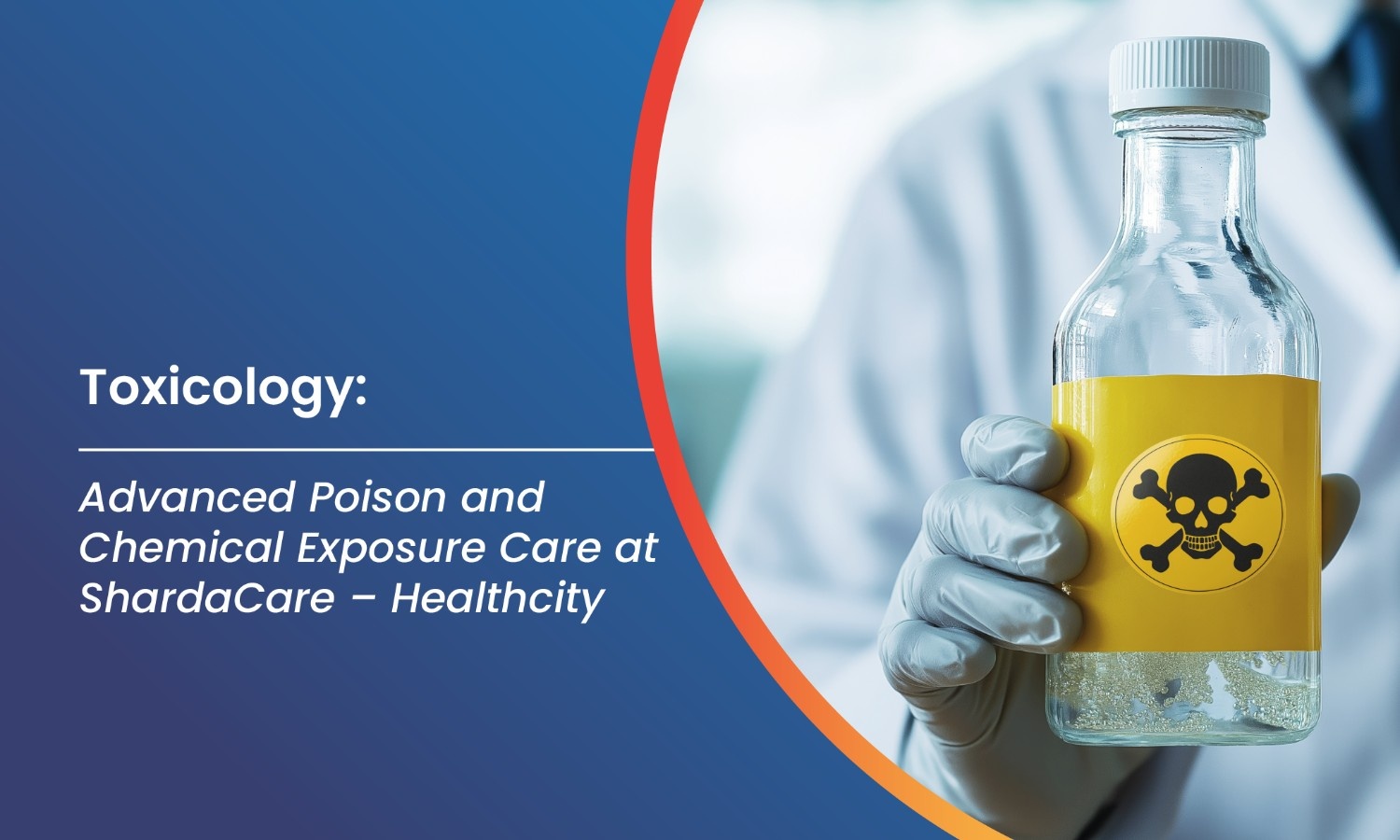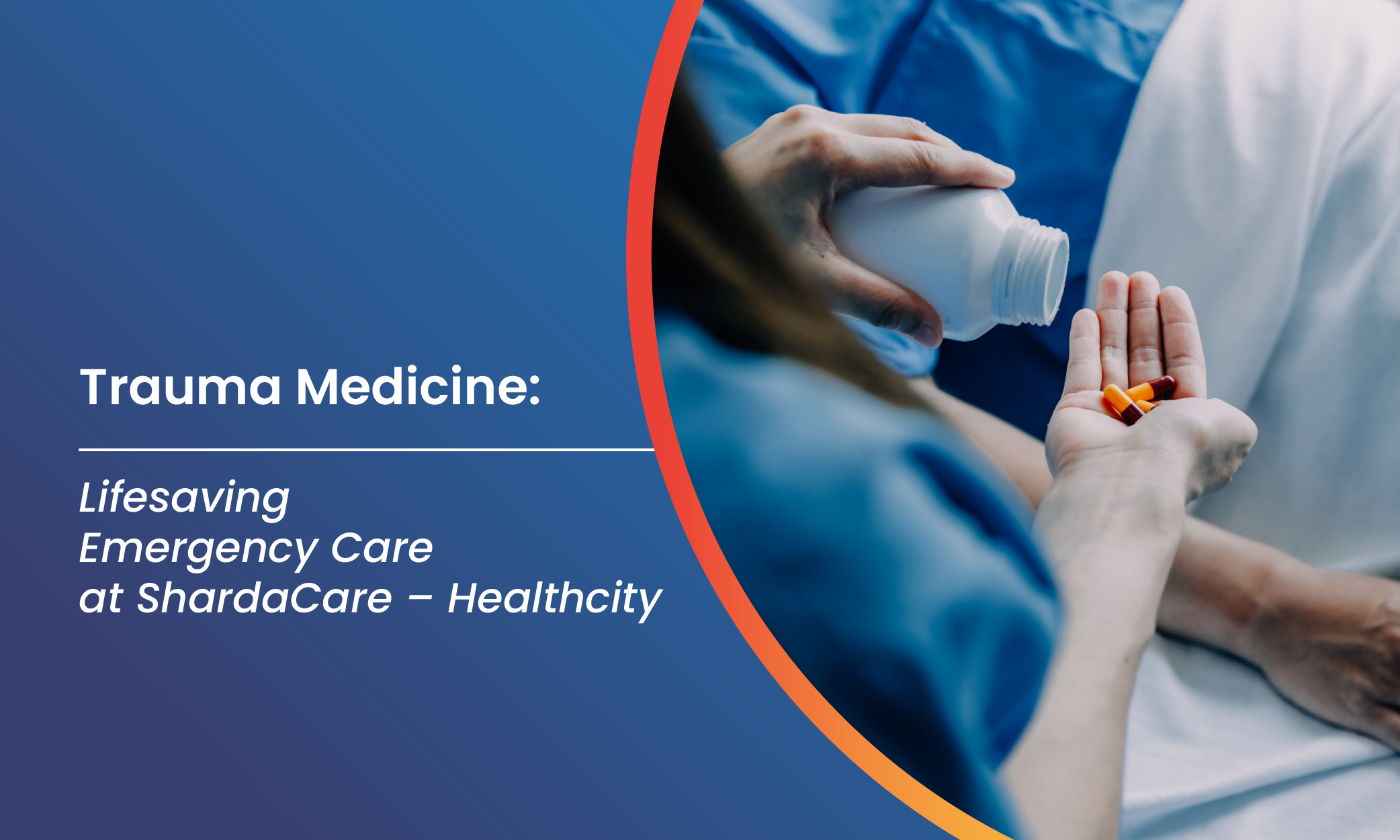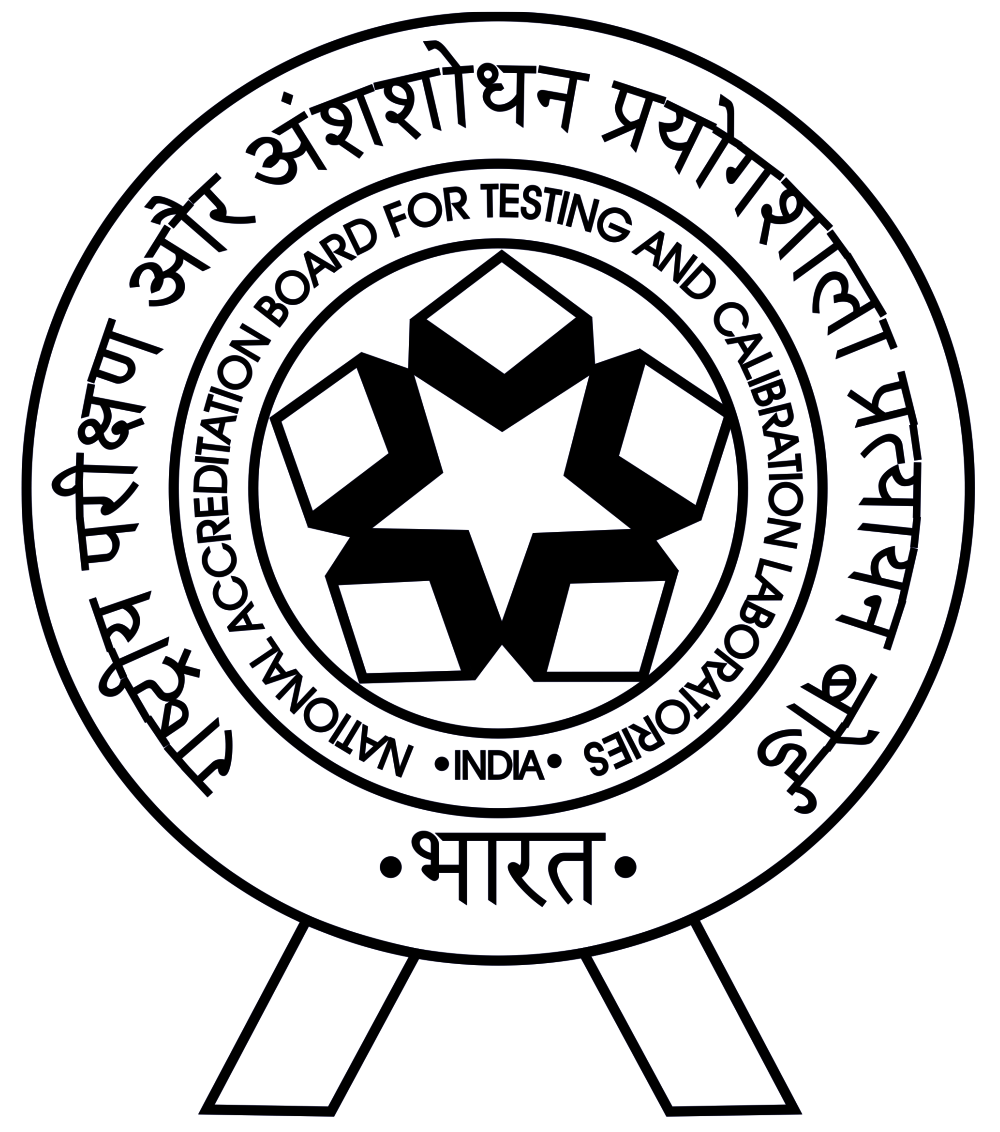
Advanced Trauma Medicine & Emergency Care at ShardaCare – Healthcity
At ShardaCare - Healthcity, we understand the critical importance of providing prompt and specialised care for individuals who have suffered traumatic injuries. Our dedicated Trauma Medicine Centre is designed to address these life-threatening situations with the utmost expertise, advanced medical resources, and a multidisciplinary approach.
The Trauma Medicine Centre at ShardaCare - Healthcity is a state-of-the-art facility equipped with the latest technologies and staffed by a team of highly trained trauma surgeons, emergency physicians, and support staff. Our comprehensive approach ensures that patients receive coordinated care from the moment they arrive, addressing not only their immediate injuries but also any underlying medical conditions or complications.
Our Trauma Medicine Centre is capable of managing a wide range of traumatic injuries, including but not limited to:
- Blunt and penetrating trauma
- Severe burns
- Traumatic brain injuries
- Spinal cord injuries
- Multiple fractures and orthopaedic injuries
- Crush injuries
- Blast and explosion-related trauma
- Trauma during pregnancy
Upon arrival at our Trauma Medicine Centre, patients undergo a thorough assessment and evaluation using advanced diagnostic tools and imaging techniques. Our team works swiftly and efficiently to stabilise the patient's condition, prioritising life-threatening injuries and implementing appropriate interventions.
Our team of trauma specialists works closely with other medical specialities, including orthopaedics, neurosurgery, plastic surgery, and critical care, to provide comprehensive care for patients with complex or multi-system injuries. We also collaborate with local and regional emergency medical services to ensure seamless patient transfer and continuity of care.
At ShardaCare - Healthcity, we are committed to providing the highest level of care and support to individuals who have suffered traumatic injuries. Our Trauma Medicine Centre serves as a beacon of hope and expertise, offering compassionate and cutting-edge treatment to ensure the best possible outcomes for our patients and their families. We understand that every second counts in trauma situations, and our dedicated team is prepared to provide prompt, efficient, and life-saving care when it matters most.
Looking for an Expert
ShardaCare - Healthcity is home to some of the eminent Doctors in the world.
Book an Appointment




















